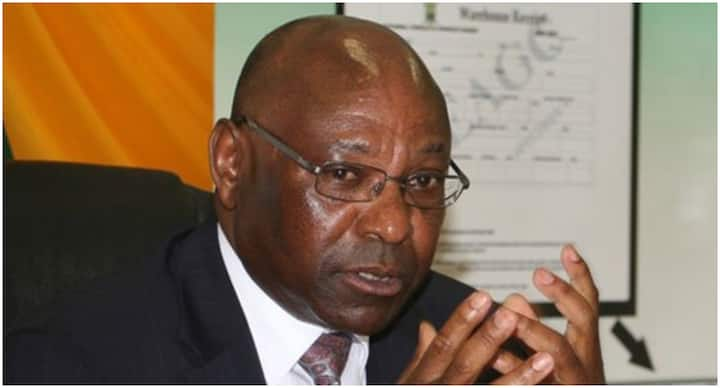Billionaire businessman Jimnah Mbaru in a past address. Photo: Jimnah Mbaru. Source: Twitter
The matter was being arbitrated before Milimani Children’s Court Principal Magistrate Jackie Kibosia, with the woman seeking orders to have Mbaru undergo paternity test to ascertain whether or not he is the father of the four-year-old at the centre of the suit.
The lady moved to court seeking Mbaru to be compelled to take paternity responsibilities after alleged negligence. During the initial proceedings of the matter on Tuesday, October 18, the businessman applied for the media to be gagged from covering the matter.
However, the woman’s lawyer Lempaa Soyinka opposed the application saying the court should take notice that young mothers are disappearing when they sue influential people for child maintenance. He said the security of the child is tied to the security of the mother and that can only be realised when the matter remained in the public.
The court however, considered Mbaru's request and directed journalists who were following the proceedings virtually to log out. KSh 4.4 million The 24-year-old mother is seeking KShs 4.4 million per year for child support.
The young mother alleged that the businessman donated his parental responsibility to one Erick Murimi Kaburu through a power of attorney, thereby, treating the minor as a ‘property of chattel goods.’ “The said Memorandum of Understanding dated September 10, the “putative father” was required to pay KShs 50,000 per month, an amount has not been remitted for the maintenance of the minor,” she claims in court documents.
In the suit papers, among other expenses, she is seeking KShs 320,000 monthly and 600,000 per year for the minor who is enrolled at Kitengela International School located in Kajiado county. In the monthly expenses, she is seeking KShs 50,000 for food, KShs 50,000 for medical expenses, KShs 50,000 for clothes, KShs 100,000 for shopping, miscellaneous expenses KShs 20,000 and house help KShs 50,000. Source: Tuko






